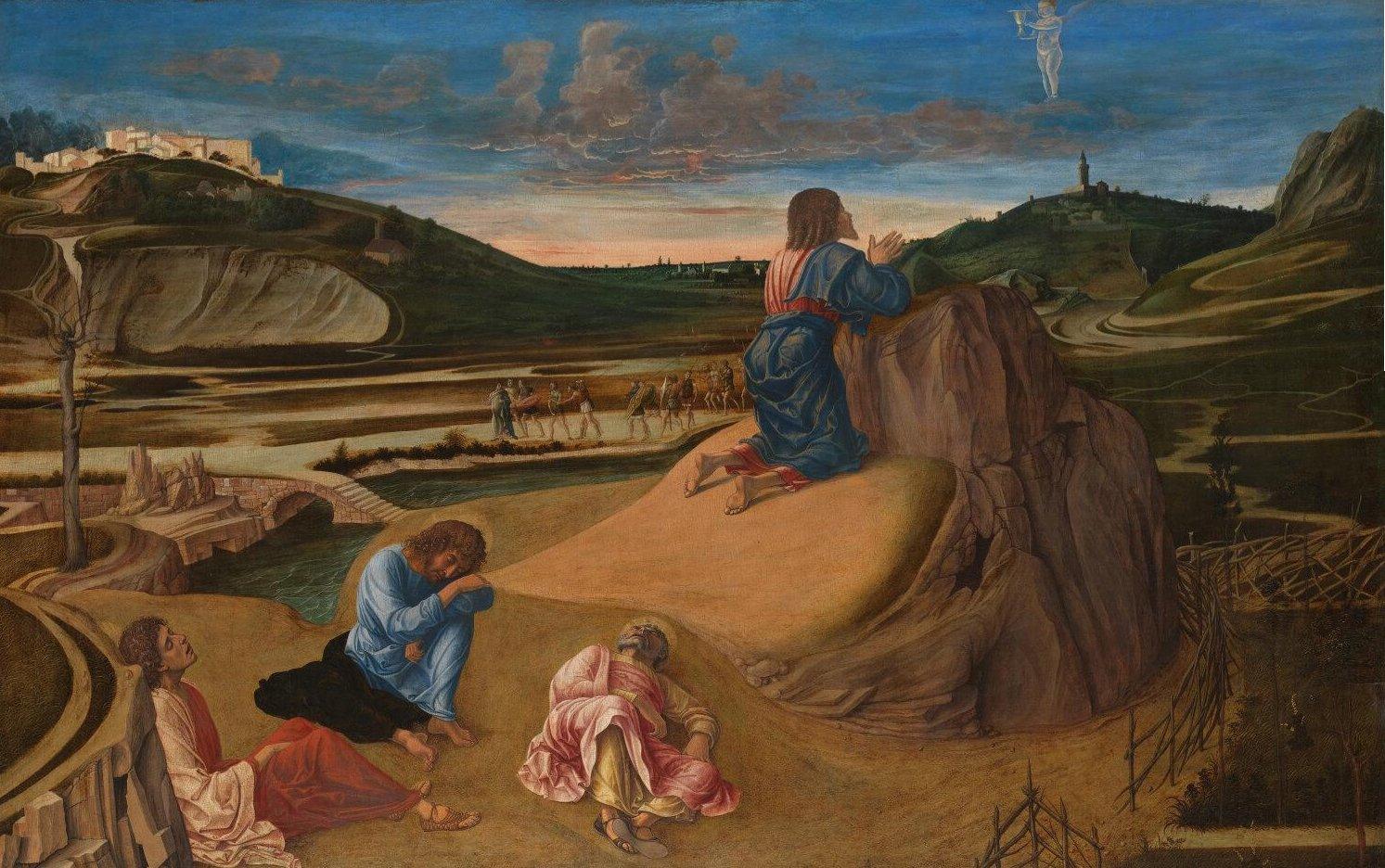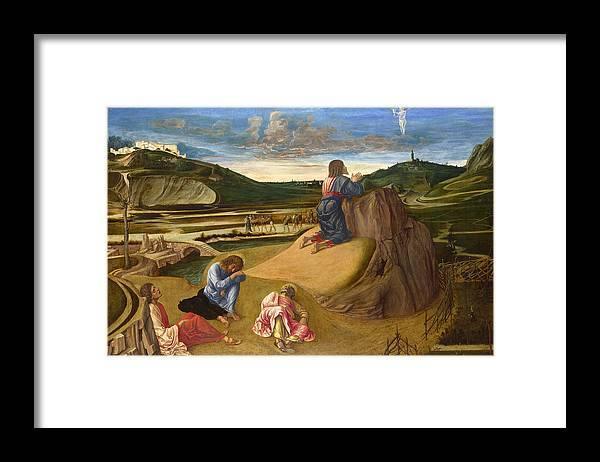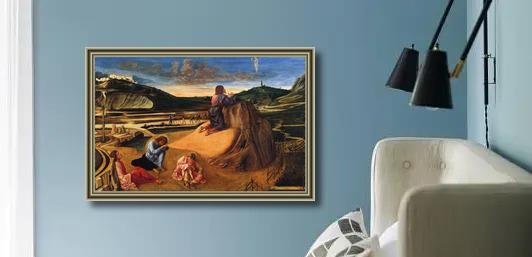Description
This painting by Giovanni Bellini is often compared to a painting his brother-in-law Andrea Mantegna did a few years earlier on the same subject. It is obvious that Bellini painted in a calmer style, while Mantegna emphasized the emotions of Jesus by placing the scene in a very harsh landscape. Bellini, for example, shows a beautiful sunrise, thus offering hope and salvation rather than predicting disaster.
The painting shows the classical biblical scene on the Mount of Olives in front of Jerusalem. Christ's disciple Judas, visible beyond the river, leading a group of soldiers towards Christ, has betrayed him. Christ, aware of his impending arrest and death, prays; a cherub appears and presents him with a chalice. The cup refers to the words of his prayer: “My Father, if it is possible, let this cup pass from me; however, not as I will, but as you” (Matthew 26:39).
Here Bellini experiments with the style of his brother-in-law Mantegna: the rock forms in the left foreground have straight edges and look as if they had been carved with a chisel. The drapes also resemble Mantegna's in their sharp, crisp folds.
Christ's pink robe blends with the peachy light of the dawn sky, highlighting the underside of the plump clouds. Bellini would continue to develop his extraordinary sensitivity to the changing effects of light in landscapes throughout his career.
Since Mantegna strongly influenced Giovanni Bellini, most of his early work, such as The Agony in the Garden, is the same as that of his brother-in-law.
Giovanni employs the use of strong contour lines as well as the foreshortening of sleeping images to practice his brother-in-law's painting style and eventually develop his technique. His painting style masterfully conveys the overall tone and emotion of hope going through suffering that Jesus' expression shows.
Throughout his pictorial life, Giovanni demonstrated his style of painting through the use of light. Explore the rays and shadows of shapes that cause two-dimensional images in three-dimensional living figures.
The Agony in the Garden painting incorporates the rising sun throughout the background which casts light on Jesus Christ and the sleeping disciples. In most paintings, the arrest of Christ in the Garden of Gethsemane was always depicted in darkness or with a faint glow of light.
The painting was one of five works, including Portrait of a Mathematician, that was damaged in a suffragette protest.
Not much is known about the reception of the painting during Bellini's lifetime. As the artist did not receive his first known commission until 1470, this work was possibly part of his apprenticeship or served to promote Bellini's work with techniques taught to him by his brother-in-law.




